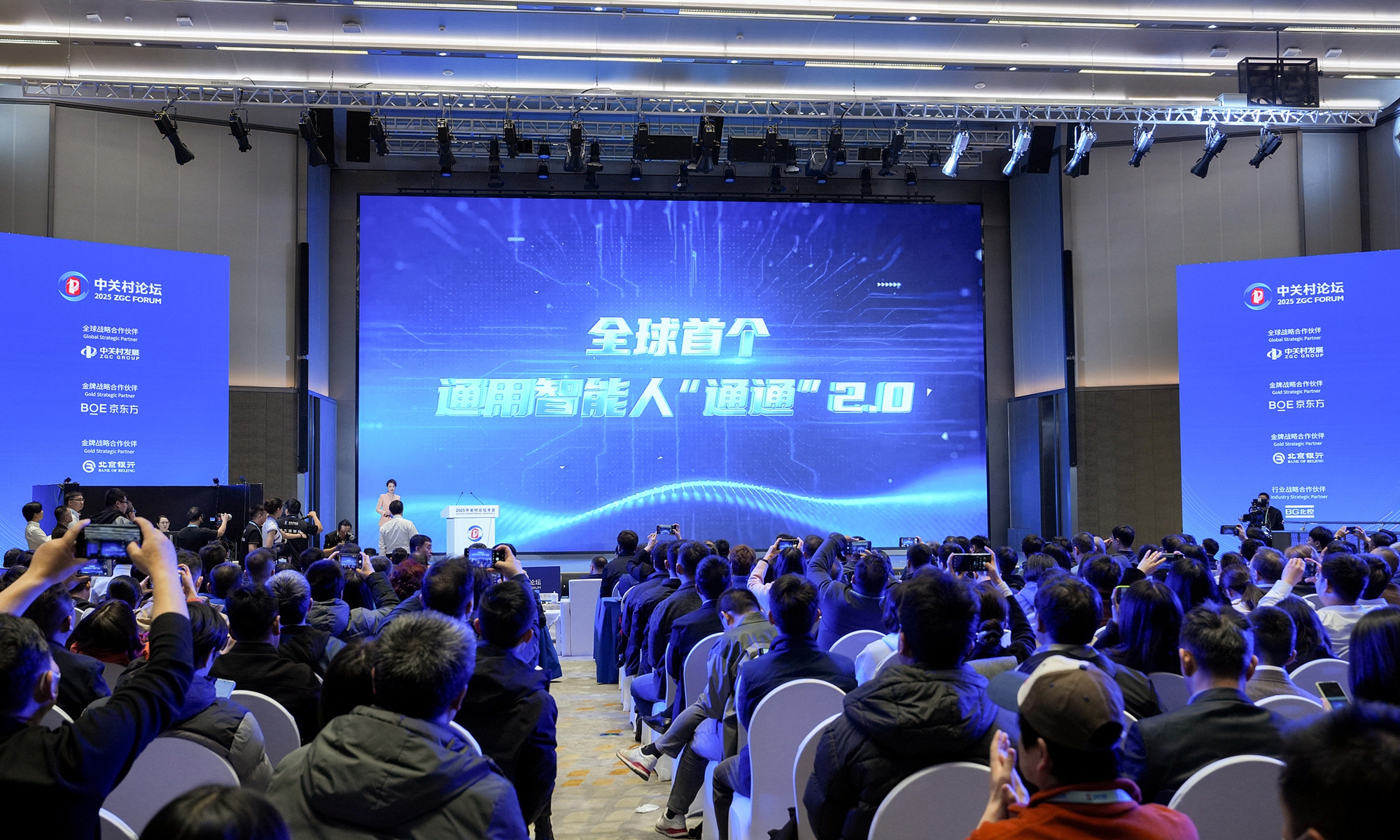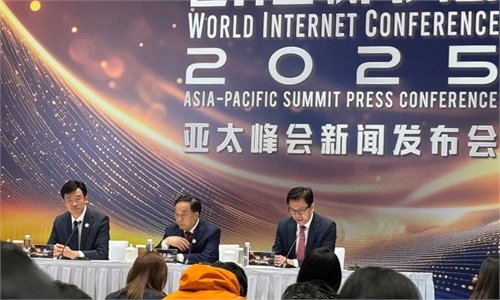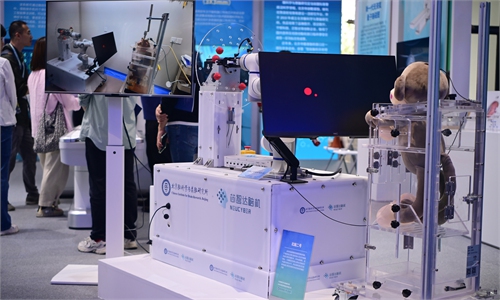Upgraded AGI model unveiled at Zhongguancun Forum amid China’s AI boom fueled by open-source innovation

Photo: VCG
The upgraded artificial general intelligence (AGI) system "TongTong 2.0," the first of its kind globally, was unveiled at the 2025 Zhongguancun Forum (ZGC Forum) in Beijing on Saturday, highlighting China's rapid AI progress fueled by open-source innovation.
An AI technician and entrepreneur at forum said that China's open-source development approach is accelerating the growth of AI and other cutting-edge technology sectors.
TongTong 2.0, an intelligent humanoid system, now has cognitive abilities akin to a 5- to 6-year-old child, up from the 2- to 3-year-old level it showed during last year's debut.
Zhu Songchun, director of the Beijing Institute for General Artificial Intelligence, the institution behind the system, highlighted the substantial progress made in the cognitive abilities of this model, which can serve as the "brain" for robots.
This key research could lead to revolutionary advancements in robotics, enabling automatic interactions with humans to undertake complex tasks, Aslan Tarik, chief technology officer of Beijing Tangta Technology Co, which specializes in AI and robotics, told the Global Times on the sideline of the forum on Saturday.
China's development in this area is impressive and significant advancements are expected in the next two to three years, which can be applied in intelligent manufacturing, smart cities and elderly care in the future, Tarik said.
The 2025 ZGC Forum's AI Theme Day featured a series of new applications showcasing advancements in AI technology, alongside developments in various fields, from medicine to new materials.
The AI Theme Day activities hold around 100 themed speeches, 20 roundtable discussions and release approximately 50 achievements, more than last year, according to data from the forum.
Since its remarkable debut at the beginning of 2025, DeepSeek's open-source product, which requires relatively basic hardware computing power, has facilitated development across a broad range of industries, Pan Helin, a member of the Expert Committee for the Information and Communication Economy under the Ministry of Industry and Information Technology, told the Global Times on Saturday.
China's AI boom and the rapid development of AI-related industries stem from national planning and openness, including a strong commitment to open-source development, said Li Meng, a former vice minister of Science and Technology, at Saturday's launch of TongTong 2.0. Boosted by the open-source approach, China's AI-related industries have experienced rapid development.
At the forum's "Future Industry Innovation Development" sub-forum, AI topped the list of 10 key future industries. As a high-value-added frontier industry, AI has demonstrated strong market potential, with the scale of China's AI industry expected to reach 1.7 trillion yuan ($230 billion) within 10 years.
By 2024, Beijing hosted more than 2,400 AI firms, including 36 unicorns, with core industry output reaching 300 billion yuan, according to forum data.



